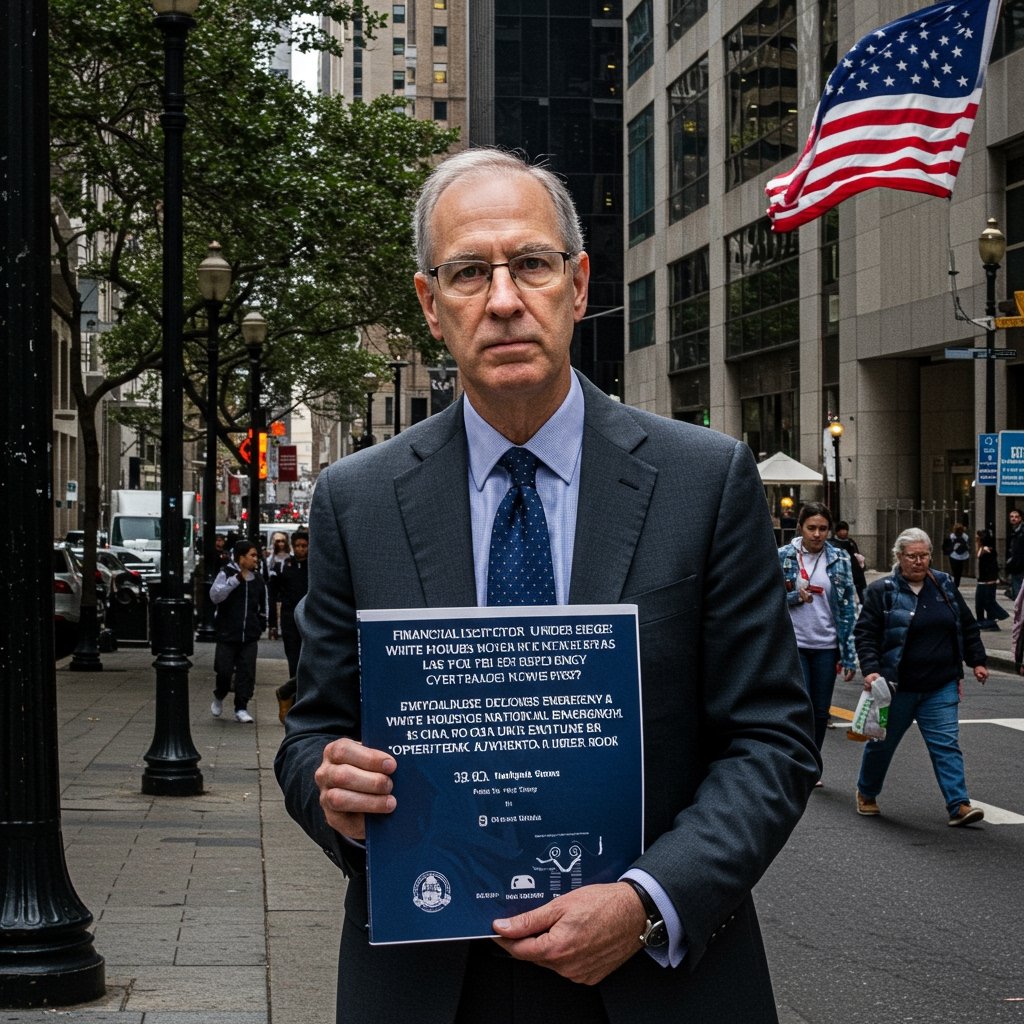National Emergency Declared Following Major Cyberattack on US Financial System
Washington D.C. – In a swift and decisive response to a sophisticated cyberattack that severely impacted key U.S. financial institutions, President [Simulated President’s Name] on February 23rd declared a national emergency, citing the significant and immediate risk posed to the nation’s economic stability.
The declaration, issued via executive order, comes less than 24 hours after the full scope of the cyber incident, which commenced on February 22nd, became apparent. The attack triggered widespread operational disruptions across critical financial infrastructure, leading to concerns at the highest levels of government regarding the potential for cascading effects throughout the economy.
‘Operation Sentinel’ Launched by CISA and FBI
Amidst the unfolding crisis, federal authorities have mobilized an unprecedented joint effort to investigate the origins and extent of the breach. The Cybersecurity and Infrastructure Security Agency (CISA) and the Federal Bureau of Investigation (FBI) have established a high-level, integrated task force specifically dedicated to this incident. Dubbed ‘Operation Sentinel’, this joint probe represents a significant commitment of resources and expertise from the nation’s lead cybersecurity and law enforcement agencies.
“Operation Sentinel brings together the full might of CISA’s defensive cyber capabilities and the FBI’s investigative and intelligence resources,” stated a joint press release from the two agencies. “Our primary objectives are to rapidly understand the full scope of the attack, identify the perpetrators, mitigate ongoing risks, and assist affected entities in restoring full functionality.”
Early Intelligence Points to State-Sponsored APT
While the investigation is in its initial stages, early intelligence assessments shared among federal agencies are strongly pointing towards a state-sponsored advanced persistent threat (APT) actor. Such actors are typically characterized by their high level of skill, ample resources, and potential links to foreign governments or state intelligence apparatuses.
Sources close to the investigation, speaking on condition of anonymity due to the sensitive nature of the probe, indicated that preliminary analysis of the attack vectors and malware signatures aligns with tactics, techniques, and procedures (TTPs) previously associated with sophisticated state-backed groups. Furthermore, initial assessments suggest a potential link to [Simulated Geopolitical Adversary Nation]. Officials cautioned that this attribution is preliminary and subject to change as forensic evidence is meticulously analyzed and correlated.
Ongoing Disruptions at Major Banks
The impact of the cyberattack remains palpable across the financial sector. Major banking institutions, including [Simulated Bank Name 1] and [Simulated Bank Name 2], have publicly reported continued operational disruptions. These disruptions have reportedly affected various services, ranging from customer access to online banking and mobile applications to delays in processing transactions and internal system outages.
Teams of cybersecurity professionals and IT experts at the affected banks are working around the clock, in close coordination with federal partners, to isolate the malicious code, assess the damage, and restore full services. The scale and persistence of the disruptions underscore the sophistication of the attack and the challenges inherent in recovering from such a significant compromise of critical financial infrastructure.
National Emergency Declaration: What It Means
President [Simulated President’s Name]’s declaration of a national emergency under the National Emergencies Act unlocks specific authorities and resources to address the crisis. It signifies that the executive branch deems the situation an extraordinary threat requiring enhanced federal powers and coordinated action across government agencies and with the private sector. This can include prioritizing resource allocation, streamlining communication channels, and potentially implementing emergency measures to safeguard the financial system.
“This declaration ensures we can bring every necessary tool and resource to bear in protecting our economy and responding to this attack,” the White House stated in a briefing. “The stability of our financial institutions is paramount, and we are taking all necessary steps to mitigate the impact and prevent further harm.”
Collaboration and Public Guidance
Federal agencies, including CISA, the FBI, the Department of the Treasury, and others, are engaged in intensive collaboration with the private sector. This partnership is deemed critical, given that the majority of the nation’s critical financial infrastructure is owned and operated by private entities. Information sharing regarding threat indicators, defensive measures, and recovery protocols is ongoing.
In parallel with the investigative and recovery efforts, officials have issued guidance to the public. While advising vigilance regarding potential phishing attempts or scams exploiting the situation, citizens were urged to remain calm. “Your deposits are safe, and federal agencies are working tirelessly to ensure the stability and integrity of the financial system,” stated a joint bulletin from CISA and the FBI. The emphasis was placed on the robust efforts underway by federal agencies working closely with the private sector to mitigate the fallout and prevent future incidents.
The Challenge of Attribution and Prevention
The potential link to a state-sponsored APT actor introduces complex geopolitical dimensions to the investigation. Attributing a cyberattack definitively to a specific nation-state is a challenging and often protracted process, requiring high confidence in technical evidence and intelligence. Should the attribution be confirmed, it could have significant foreign policy and national security implications.
The incident also highlights the persistent and evolving threat landscape facing critical infrastructure. Experts note that state-sponsored actors possess sophisticated capabilities and the intent to target vital sectors for strategic advantage, whether through espionage, disruption, or financial manipulation. The long-term response will likely involve enhancing cybersecurity defenses across the financial sector, strengthening public-private partnerships, and potentially reviewing national cyber deterrence strategies.
As ‘Operation Sentinel’ continues its work, and financial institutions labor to restore full functionality, the declaration of a national emergency underscores the severity of the threat and the government’s commitment to a coordinated, high-priority response. The investigation is ongoing, and further details are expected to emerge as forensic analysis and intelligence gathering progress.






